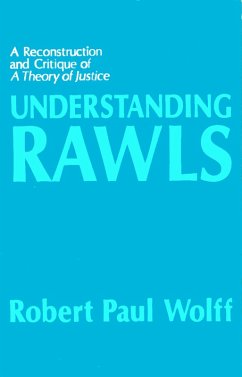According to Professor Wolff, Rawls' device of a bargaining game among self-interested parties is designed to solve Kant's problem of deriving substantive moral and political principles from purely formal criteria of rationality. This book traces the ever-greater complications introduced by Rawls into his theory to overcome weaknesses and respond to critics. Once he has reconstructed Rawls' theory to exhibit its underlying structure, Professor Wolff subjects it to a series of fundamental criticisms and shows where it fails by appealing to economic, psychological, and sociological considerations, as well as to those of philosophy.
Understanding Rawls contends that Rawls' approach to social philosophy by way of formal models of game theory and welfare economics is fundamentally misguided. The bargaining "theorem" sketched by Rawls is shown to be invalid, and the author suggests that a different mode of analysis, owing more to the legacies of Marx and Freud, would be more fruitful in the search for a usable conception of social justice.
Dieser Download kann aus rechtlichen Gründen nur mit Rechnungsadresse in A, B, CY, CZ, D, DK, EW, E, FIN, F, GR, H, IRL, I, LT, L, LR, M, NL, PL, P, R, S, SLO, SK ausgeliefert werden.









